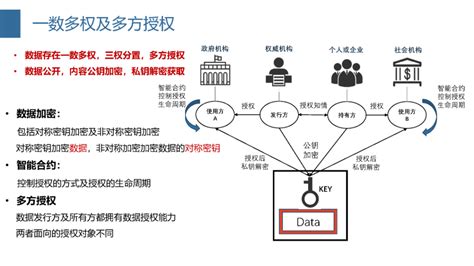Exploring the Key Vocabulary in the Blockchain Industry
The blockchain industry has surged in popularity and innovation over the past decade, introducing a plethora of new terms and concepts. Let's delve into some of the common terms you might encounter in the realm of blockchain technology:

1. Blockchain:
Definition:
A decentralized, distributed ledger technology that records transactions across multiple computers in a way that makes the data immutable and secure.
Usage:
Blockchain is the underlying technology behind cryptocurrencies like Bitcoin and Ethereum.2. Cryptocurrency:
Definition:
Digital or virtual currencies secured by cryptography, operating independently of a central bank.
Usage:
Bitcoin, Ethereum, and Ripple are popular cryptocurrencies in the market.3. Smart Contract:
Definition:
Selfexecuting contracts with the terms of the agreement directly written into code.
Usage:
Smart contracts automate and enforce the terms of agreements, often used in decentralized applications (DApps).4. Decentralized Finance (DeFi):
Definition:
Financial services built on blockchain technology that operate without traditional intermediaries.
Usage:
DeFi platforms offer services such as lending, borrowing, and trading using cryptocurrencies.5. Distributed Ledger Technology (DLT):
Definition:
A consensus of replicated, shared, and synchronized digital data spread across multiple sites, countries, or institutions.
Usage:
Blockchain is a type of DLT, but not all DLTs are blockchains.6. Consensus Mechanism:
Definition:
A protocol used to achieve agreement on a single data value among distributed processes or systems.
Usage:
Proof of Work (PoW), Proof of Stake (PoS), and Delegated Proof of Stake (DPoS) are common consensus mechanisms.7. Node:
Definition:
A device connected to a blockchain network that maintains a copy of the blockchain and participates in transaction validation.
Usage:
Nodes ensure the integrity and security of the blockchain network.8. Mining:
Definition:
The process of validating transactions and adding them to the blockchain using computational power.
Usage:
Miners are rewarded with cryptocurrency for their efforts in the mining process.9. Immutable:
Definition:
Unable to be changed, tampered with, or deleted.
Usage:
Blockchain provides immutable records of transactions, enhancing transparency and security.10. Tokenization:
Definition:
The process of converting rights to an asset into a digital token on a blockchain.
Usage:
Tokenization enables fractional ownership and easier transferability of assets like real estate and artwork.11. Fork:
Definition:
A divergence in the blockchain's transaction history, resulting in two separate chains.
Usage:
Forks can be either hard forks (irreconcilable differences) or soft forks (backwardcompatible).12. Wallet:
Definition:
Software or hardware used to store, manage, and transact cryptocurrencies.
Usage:
Wallets can be hot (connected to the internet) or cold (offline for enhanced security).13. ICO (Initial Coin Offering) / STO (Security Token Offering):
Definition:
Fundraising mechanisms where new projects sell crypto tokens to investors.
Usage:
ICOs and STOs enable startups to raise capital for their blockchain projects.14. Gas:
Definition:
The fee required to execute transactions or smart contracts on the Ethereum blockchain.
Usage:
Users pay gas fees to compensate miners for the computational resources used.15. Oracles:
Definition:
Thirdparty services that provide external data to smart contracts on the blockchain.
Usage:
Oracles enable smart contracts to interact with realworld data, expanding their use cases.Mastering these terms will not only enhance your understanding of blockchain technology but also empower you to navigate the evolving landscape of this dynamic industry. Keep exploring, as the blockchain space continues to evolve with new innovations and concepts.
标签: 区块链常用英文 区块链在行业中的应用 区块链已经在哪些行业应用






